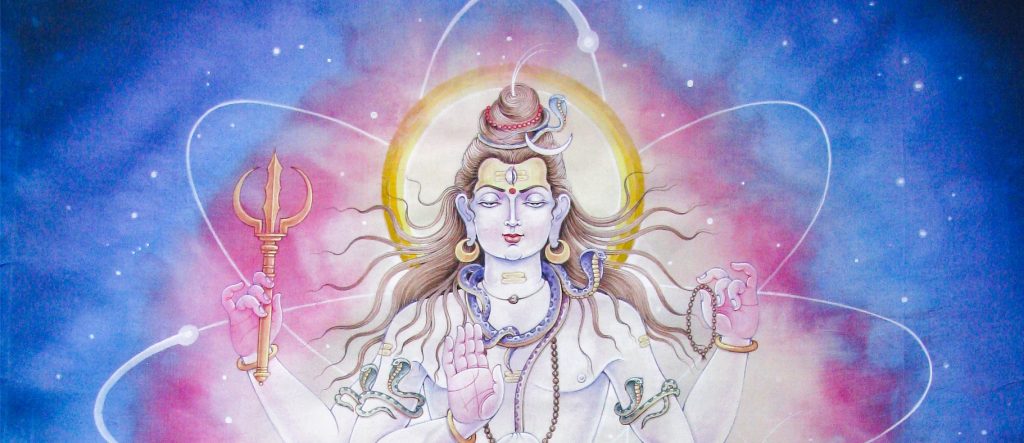The metaphysics of creation and endorsement of non-dual meditation
The following is from the translation of Brihadaranyaka Upanishad by S. Radhakrishnan. This Upanishad belongs to the Shukla Yajurveda. The following verses are drawn from chapter 1, section 4, and have been lightly edited for clarity. Verse 7 was removed for brevity.
1. In the beginning this world was only the Self, in the form of the universal soul. Looking around He saw nothing else than the Self. He first said, “I am.” Therefore arose the name “I.” Therefore, even to this day when one is addressed he says first “This is I” and then speaks whatever other name he may have. Because before all this He burnt all evils, therefore He is the universal soul. He who knows this, verily, burns up all who wish to be before Him.
2. He was afraid. Therefore one who is alone is afraid. This One then thought to Himself, “since there is nothing else than myself, of what am I afraid?” Thereupon His fear passed away, for, of what should He have been afraid? Assuredly, it is from a second that fear arises.
3. He, verily, had no delight. Therefore he who is alone has no delight. He desired a second. He became as large as a woman and a man in close embrace. He caused that Self to fall into two parts. From that arose husband and wife. Therefore, as Yajnavalkya used to say, this body is one half of oneself, like one of the two halves of a split pea. Therefore this space is filled by a wife. He became united with her. From that, human beings were produced.
4. She thought, “How can He unite with me after having produced me from himself?” Well, let me hide myself. She became a cow, the other became a bull and was united with her and from that cows were born. The one became a mare, the other a stallion. The one became a she ass, the other a he ass and was united with her; and from that one-hoofed animals were born. The one became a she goat, the other a he goat, the one became a ewe, the other became a ram and was united with her and from that goats and sheep were born. Thus, indeed, He produced everything, whatever exists in pairs, down to the ants.
5. He knew, I indeed am this creation, for I produced all this. Therefore He became the creation. He who knows this as such comes to be in that creation of His.
6. Then He rubbed back and forth and produced fire from its source, the mouth and the hands. Both these mouth and the hands are hairless on the inside, for the source is hairless on the inside. When the people say “sacrifice to him,” “sacrifice to the other one,” all this is His creation indeed and He Himself is all the Gods. And now whatever is moist, that He produced from semen, and that is Soma. This whole world is just food and the eater of food. Soma is food, and fire is the eater of food. This is the highest creation of Brahma, namely, that He created the Gods who are superior to him. He, although mortal himself, created the immortals. Therefore it is the highest creation. Verily, he who knows this becomes a creator in this highest creation.
8. That Self is dearer than a son, is dearer than wealth, is dearer than everything else and is innermost. If one were to say to a person who speaks of anything else than the Self as dear, he will lose what he holds dear, he would very likely do so. One should meditate on the Self alone as dear. He who meditates on the Self alone as dear, what he holds dear, verily, will not perish.
9. They say, since men think that by the knowledge of Brahman they become all, what was it that Brahman knew by which He became all?
10. Brahman, indeed, was this in the beginning. It knew itself only as “I am Brahman.” Therefore It became all. Whoever among the Gods became awakened to this, He, indeed, became that. It is the same in the case of seers, same in the case of men. Seeing this, indeed, the seer Vamadeva knew, “I was Manu and the Sun, too.” This is so even now. Whoever knows thus, “I am Brahman,” becomes this all. Even the Gods cannot prevent His becoming thus, for He becomes their Self. So, whoever worships another Divinity than his Self, thinking that he is one and Brahman another, he knows not. He is like an animal to the Gods. As many animals serve a man, so does each man serve the Gods. Even if one animal is taken away, it causes displeasure, what should one say of many animals? Therefore it is not pleasing to the Gods that men should know this.
Sarvepalli Radhakrishnan (1888-1975) was an Indian philosopher and statesman, India’s first vice president (1952–1962) and second president (1962–1967).
